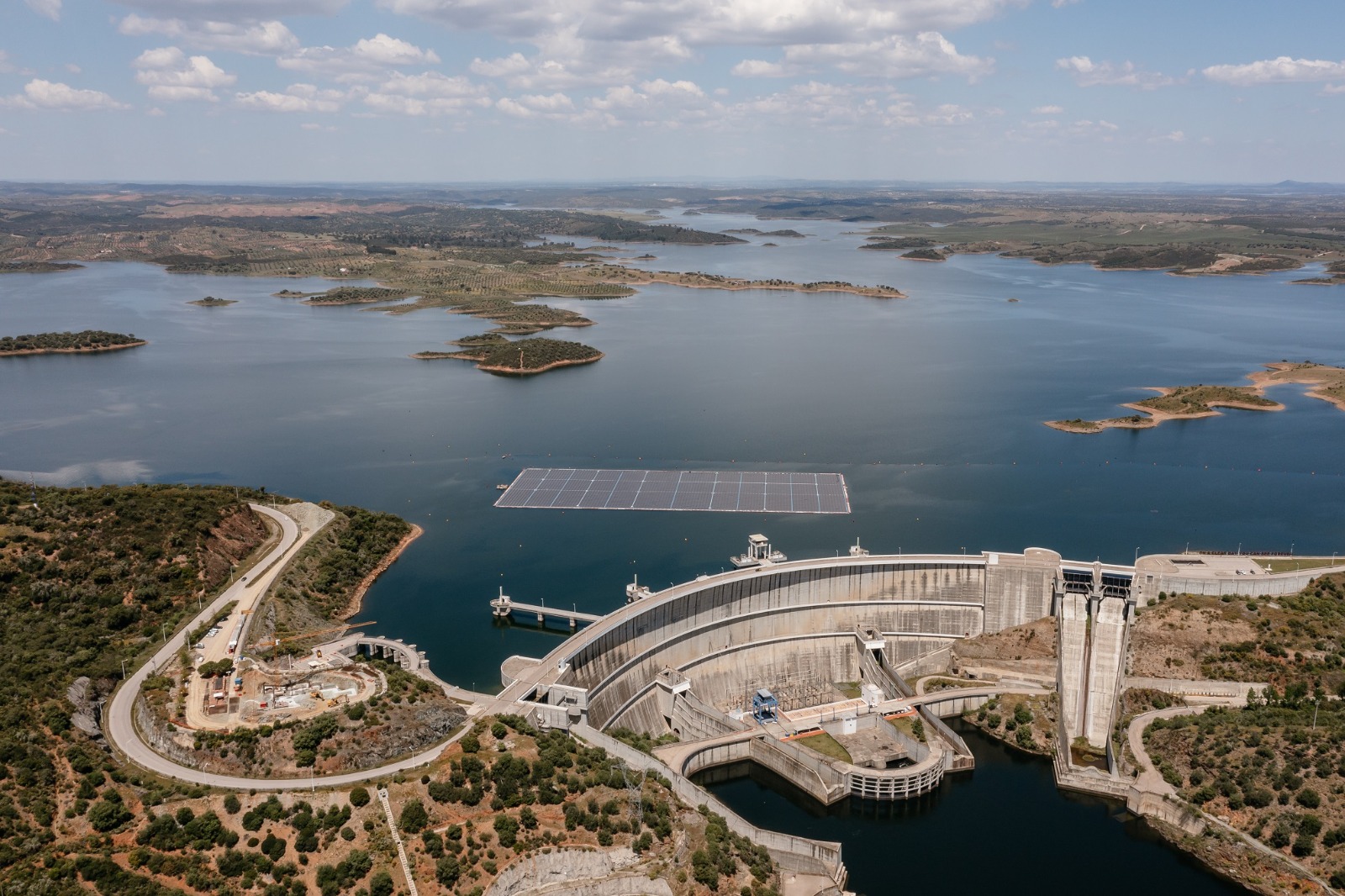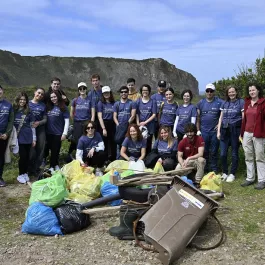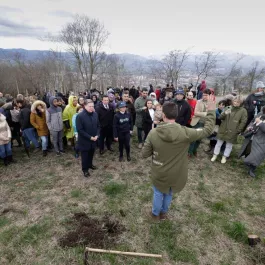
The European Commission rewards EDP’s floating solar project for its innovation

In the European week destined to sustainability, the European Commission has honored EDP’s project for its innovation
EDP’s floating solar park project in Alqueva has been honored by the European Commission in the Innovation category. The award, announced in the opening act of the European Sustainability Week, acknowledges not only the pioneer and innovative technology developed by EDP in this project, but also its contribution to the expansion of renewable energies and to the energy transition.
EDP’s project was one of the three finalists selected for the European Sustainable Energy Awards 2023 – which acknowledge outstanding projects, in progress or recently finished, that prove an original and innovative path for the energy transition - and ended up being the winner after a global voting that took place in June. The other two candidates in the Innovation category were TrAM (Transport: Advanced and Modular), from Norway, and the pan-European project STEP (Solutions to Tackle Energy Poverty), originally from Lithuania. TrAM is the origin of the world’s first fast passenger vessel to be completely electric and without emissions. STEP uses social innovation to battle energy poverty in nine EU countries.
Operational for about a year now, EDP’s hybrid project combines solar and hydroelectric energy and battery storage, using an innovative scalable technology that helps reducing emissions while also protecting nature. This principle of combining different forms of renewable energy in an only project and an only network connection point is at the base of the floating solar plant of 5 MW of Alqueva, where 12 000 solar panels float in 4 hectares of Alqueva’s dam’s reservoir. The floating solar plant, which mooring system with elastic cables was developed in the framework of the project Fresher, financed by the EU, provides enough energy to supply 30 % of the energy consumption of the region’s families.
Hybridization at the forefront
The floating solar plant uses the same network connection point as the hydroelectric plant of Alqueva, built 20 years ago, and turns to the batteries’ storage to increase the resilience of the energy supply. This hybrid focus increases the projects’ efficiency, enabling them to share infrastructures like electric lines and substations, apart from stabilizing costs and reducing environmental impact. Together, these different technologies complement each other to provide clean, reliable and affordable energy.
The ecosystem’s preservation is one of the milestones of this renewable project, also taking into account the social aspects of sustainability. The facilities of the floating solar plant in the dam’s reservoir, where it only covers 0.16 % of the water’s surface, avoids the use of areas that could be used for other purposes, like agriculture, livestock and tourism. The visual impact is also minimum.
The project has promoted the innovation and the R+D of the local industry, thanks to a collaboration with Amorim Cork Composites, a Portuguese company that has been operating in the region for 150 years. Together with the Spanish manufacturer Isigenere, they developed a unique combination of a compound of cork and recycled plastic, which is the base of those sustainable floaters. The use of this new material has reduced the weight of the platform by 15 % and has contributed to reduce the carbon footprint of the floaters production by 30 %. It is an example of how resources and local knowledge can combine with new technologies to produce powerful results. The project’s team applied the knowledge acquired through a small pilot project in the north of the country, Alto Rabagão, developed in 2016.
When expanding the scale of the solutions adopted there, it shows the biggest potential to replicate its positive results at a higher level. 70 MW more are expected in the reservoir of Alqueva, after the first bid of floating solar energy in Portugal, and thanks to this plant, there is a raising awareness regarding the potential of this type of technology.
The floating solar energy plant of Alqueva is an example of the success of the EU funding in innovative projects related to climate change. This initiative supports directly the European Green Deal and the REPowerEU Plan.
About EUSEW 2023
The European Sustainable Energy Week (EUSEW), the biggest annual event dedicated to renewable energies and the efficient use of energy in Europe, will be celebrated from June 20 to June 2022 under the motto “Accelerating the clean energy transition: towards lower bills and higher skills”. The event brings together thousands of interested in sustainability to explore political matters related to European consumers’ protection against prices’ volatility and the improvement of their skills to produce and save energy in the current energy context.


